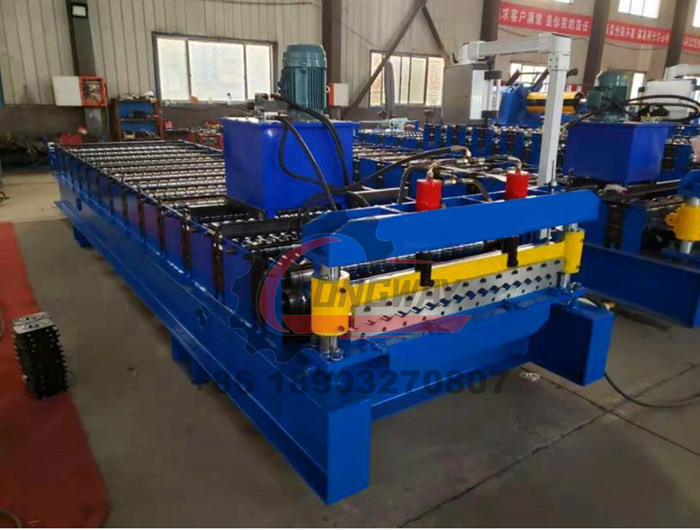Custom Sheet Metal Roll Forming Solutions for Versatile Applications and Industrial Needs
Custom Sheet Metal Roll Forming An Overview
Custom sheet metal roll forming is a highly specialized manufacturing process used to create precisely shaped metal components for a wide range of industries. This technique involves feeding a continuous strip of sheet metal through a series of rollers. Each roller is designed to progressively shape the metal into the desired form, resulting in a finished product that meets specific design and functional requirements. This article delves into the key aspects, benefits, and applications of custom sheet metal roll forming.
The Process of Roll Forming
The roll forming process starts with a flat sheet of metal, which can be made of various materials, including steel, aluminum, or copper. The metal strip is driven through a series of rollers set at specific angles to gradually bend and shape the material. The number of rollers used depends on the complexity of the desired profile. This process is continuous, meaning that long lengths of product can be produced without interruption, making it highly efficient.
Precision is paramount in custom roll forming. The pressure and alignment of the rollers must be meticulously adjusted to ensure that the final shape conforms exactly to the specifications. Advanced computer-aided design (CAD) software is often utilized during the design phase to model the profile and ensure that everything aligns correctly.
Advantages of Custom Roll Forming
One of the primary benefits of custom sheet metal roll forming is its ability to produce complex shapes with a high level of accuracy. The process can create parts that require tight tolerances which are essential in sectors such as automotive, aerospace, and construction.
custom sheet metal roll forming

Additionally, roll forming can be a cost-effective solution for large production volumes. Since the process is continuous, the need for extensive machining processes is reduced, leading to lower production costs per unit. Moreover, waste material is minimal, as the entire length of the metal strip is used in production.
Another significant advantage is the material versatility offered by roll forming. This technique can accommodate a wide range of materials, whether they are thin strip metals or thicker gauges, allowing manufacturers to choose the best material for their specific application. Furthermore, custom roll-formed parts are often lighter than parts created through alternative methods, which can be a crucial consideration in industries such as automotive and aerospace, where weight reduction is vital for efficiency.
Applications in Various Industries
Custom sheet metal roll forming is applicable in numerous industries, each requiring specific shapes and sizes for their components. In the construction industry, roll-formed products are used for framing, roofing, and siding applications. The automotive industry benefits from roll-formed parts such as body panels, reinforcement beams, and trim pieces, all of which require precise shapes for optimal performance.
Additionally, the HVAC industry employs roll forming to create ductwork and related components, ensuring that they fit seamlessly in various installations. The furniture industry also utilizes this technique to create stylish and functional metal components that enhance durability and aesthetics.
Conclusion
In conclusion, custom sheet metal roll forming is an essential manufacturing process that provides significant advantages in terms of efficiency, accuracy, and material versatility. Its wide range of applications across various industries highlights the vital role it plays in modern manufacturing. As technology continues to advance, the capabilities and efficiencies of custom sheet metal roll forming will undoubtedly expand, making it an even more integral process in the production of complex metal components.
-
Roof Panel Machines: Buying Guide, Types, and PricingNewsJul.04, 2025
-
Purlin Machines: Types, Features, and Pricing GuideNewsJul.04, 2025
-
Metal Embossing Machines: Types, Applications, and Buying GuideNewsJul.04, 2025
-
Gutter Machines: Features, Types, and Cost BreakdownNewsJul.04, 2025
-
Cut to Length Line: Overview, Equipment, and Buying GuideNewsJul.04, 2025
-
Auto Stacker: Features, Applications, and Cost BreakdownNewsJul.04, 2025
-
Top Drywall Profile Machine Models for SaleNewsJun.05, 2025








